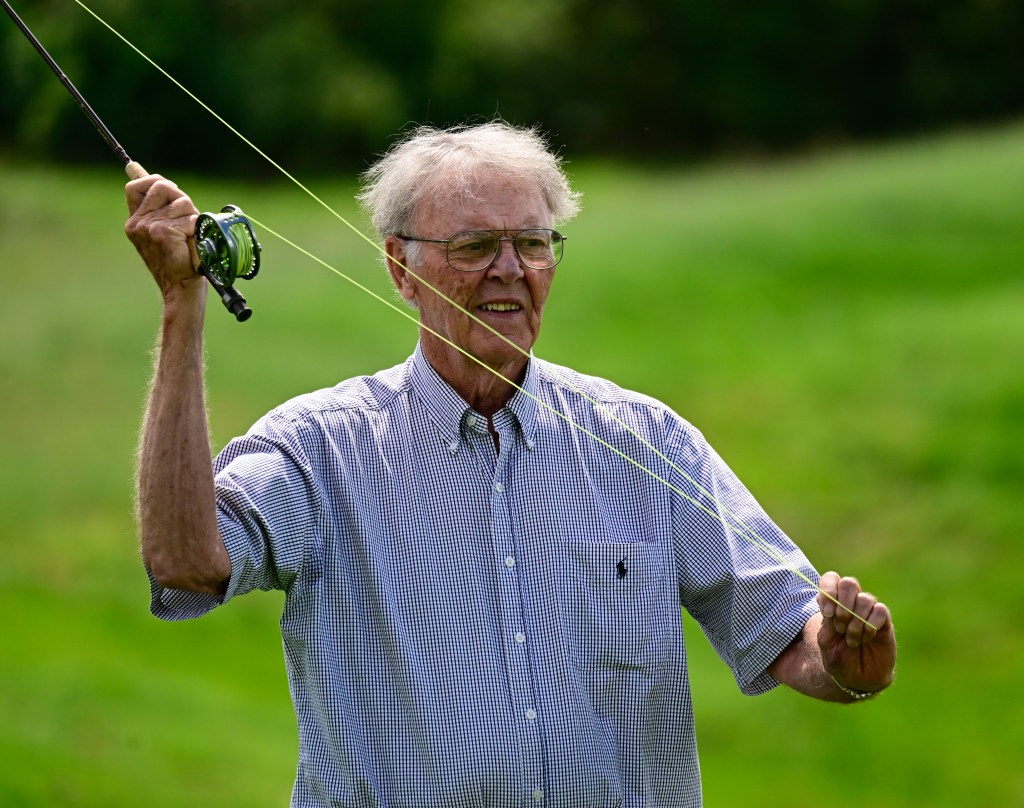Kayak, raft, float or fish a Colorado river and you’re likely to eventually come across an illegal sign attempting to restrict your access to the publicly owned river.
Roger Hill has fought for more than a decade to reclaim public access to these rivers where ill-informed or intentionally errant landowners have attempted to block access. He calls his act of fishing on stretches where public waterways flow through private property marked with no trespassing signs “civil disobedience.” Just this week, the 83-year-old resolved to continue his fight, and asked others to join the movement.
We echo his call for action but want to be clear that we are not calling for civil disobedience because the law is on Hills’ side.
Law enforcement officers should know that they cannot enforce trespassing laws on public property – in this case, rivers that are floatable even as they pass through private land. Homeowners who call a local sheriff on fishermen and rafters should be met with laughter.
Collectively ignoring these false claims on publicly owned waterways is the only path forward, after years of ignored pleas for change. Lawmakers have refused to address the issue for years and the Colorado Supreme Court has avoided ruling on cases. Every year of inaction by the Capitol and the courts, landowners are emboldened to claim more of our natural resources from the public.
However, that doesn’t mean the “Right to Wade” movement is not without risk.
Smart landowners simply post no-trespassing signs along the water’s edge hoping to discourage people ignorant of the law from using the river along their property. Aggressive landowners have taken to stringing wires across the river with “Keep Out” signs. Crazy landowners might assault people, brandish and even fire weapons, or commit other crimes in an effort to retain their squatter’s claim on a public resource.
Coloradans naturally respect private property rights but we’d remind recreation enthusiasts: to stay on the river, keep noise levels down, and not to litter, clean fish or go to the bathroom on the adjacent banks.
These rivers have not been purchased with the transfer of a land title or even the transfer of water rights. If a landowner holds some right to take some water from the Colorado River, that does not mean they own the entire river while it’s on their property. Common sense tells us this, as does the public trust doctrine.
Water use rights – irrigation, drinking, etc. — are secured by their own laws as spelled out in the Colorado Constitution in Article XVI. Nobody is trying to change those laws or change anyone’s rightful claim to use the water.
As Coloradans begin reclaiming their property, lawmakers can learn a lot by reading the excellent laws in Montana that cement the right to access waterways that flow through private lands. A new Colorado law rumored to be drafted for the 2025 legislative session should include these five key provisions modeled after the law in Montana:
1. Define “navigable” waters broadly to include waters that historically were used for log floating, fur trading, and mining and in the modern day can be used for recreational activities like rafting, kayaking, guided fishing or floating.
2. Landowners do not have to grant any easement for access to the waters, but cannot restrict access to the water from other public or private land.
3. A right to portage around barriers in water in the least intrusive manner possible without damaging property.
4. A right to use the streambed as defined by the high-water mark of the river.
5. And finally, indemnity for landowners from any claim of harm that may come to people using the river or river bank or injured while accessing private property in an emergency.
Anything less than this would be a disservice to Coloradans.
Sign up for Sound Off to get a weekly roundup of our columns, editorials and more.
To send a letter to the editor about this article, submit online or check out our guidelines for how to submit by email or mail.
